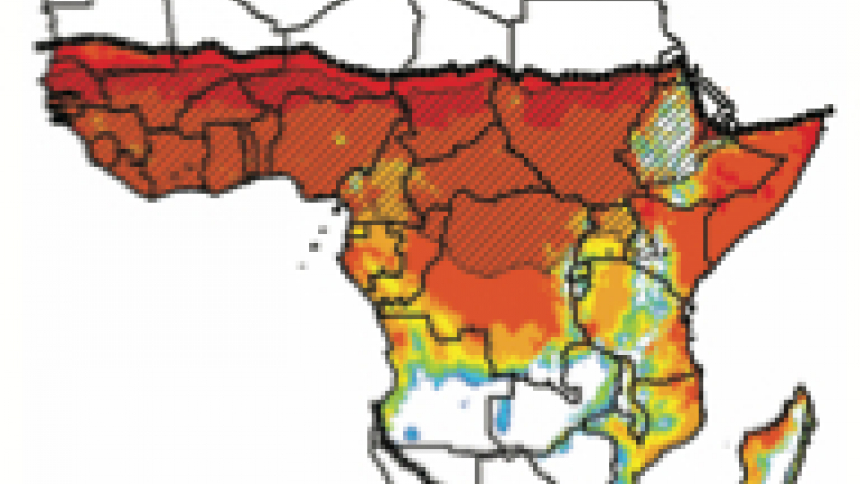Synopsis by Brittany Dodson
Temperature is an important climatic factor in determining malaria distribution and transmission. Studies modeling human malaria risk incorporate temperature to predict changes in transmission over time. However, these studies utilize mean monthly temperatures alone, which may not reflect the actual thermal environment experienced by mosquitoes and malaria parasites. Recent work has demonstrated that malaria parasite development and mosquito life history traits (i.e., immature development and survival, adult survival, and the length of gonotrophic cycle) are not only affected by mean monthly temperatures, but also by daily variations in temperature.
Researchers Justine Blanford, Simon Blanford, Krijn Paaijmans, Michael Mann, Rob Crane, Kathleen Schreiber and Matt Thomas, examined the impact of different temperature measures (monthly, daily, and hourly mean), on estimates of parasite development in the mosquito (extrinsic incubation period, EIP). Their study included temperature data acquired over several decades from four Kenyan sites of varying climate and malaria prevalence. They found that using hourly temperature records predicted a longer EIP than expected with monthly or daily means in the warm sites; in cool sites, hourly temperatures predicted a shorter EIP than expected. Though EIP is only one factor underlying malaria risk, the differences in EIP between hourly variations and standard measurements are important ones to consider when attempting to predict changes in disease prevalence or distribution.
To illustrate how different temporal scales can affect malaria transmission, they further evaluated the impact of temperature variation across space on malaria both in Kenya and across Africa. They observed under- and over-estimates of parasite development across time and space. Interestingly, in regions of Kenya west of Nairobi, hourly fluctuating temperatures estimated EIPs up to 100% faster than those predicted using monthly mean temperature.
This study highlights the importance of accounting for daily temperature variation in an area when evaluating malaria transmission risk and predicting changes over time and space.
Publication Details
Blanford JI, Blanford SB, Crane RG, Mann ME, Paaijmans KP, Schreiber KV, & Thomas MB
Implications of temperature variation for malaria parasite development across Africa
Journal: Scientific Reports
3: 1300
DOI Reference




